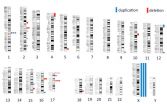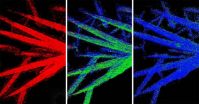(Press-News.org) DALLAS, April 20, 2015 -- For the first time, the American Heart Association has issued recommendations for healthcare providers treating people older than 40 with congenital heart disease.
"People born with congenital heart disease are living longer and fuller lives than ever before, and there are now more adults than children with congenital heart disease," said Ami Bhatt, M.D., lead author of the new scientific statement published in the American Heart Association journal Circulation.
"These patients often have a sense that their heart has been 'fixed' and they don't need follow-up. However, in adulthood they can develop complications from the underlying disease or the heart repairs that kept them alive as children, therefore, these adults need lifelong cardiac care," Bhatt said.
Congenital heart diseases are heart and blood vessel abnormalities present at birth.
Among issues addressed in the statement:
Physical activity is encouraged. Exercise intolerance is common in adults with congenital heart disease, and exercise testing can help physicians create an individualized physical activity plan.
Most adults with congenital heart disease can be sexually active. People should talk to their physicians for advice about their heart conditions, anxiety about sexual activity or about resuming sexual activity after a new heart problem or procedure.
Many men with congenital heart disease can take erectile dysfunction drugs as long as they're not taking nitrates and their heart condition doesn't preclude sexual activity, and should discuss this issue with their cardiologist.
Women with congenital heart disease struggling with menopausal symptoms, such as hot flashes, and contemplating hormone replacement therapy, must consider the heightened risk of blood clots if they undergo certain congenital heart disease procedures. Vaginal estrogen therapy can be useful in those with vaginal dryness.
Adult complications of various types of congenital heart disease and their treatment include a higher risk of heart failure, valve problems, high blood pressure in the lungs, and abnormal heart rhythms.
"A seemingly simple diagnosis from childhood can sometimes have complications in adulthood, while people with more complex congenital heart issues may stay stable with age," said Bhatt, who is also director of the Adult Congenital Heart Disease Program at Massachusetts General Hospital in Boston, Mass.
People with congenital heart disease may also develop acquired heart disease and attention to controlling heart disease risk factors like overweight, diabetes, blood pressure, smoking and sedentary lifestyle is important and should not take a back seat to their congenital medical history, Bhatt said.
In addition to being followed by a cardiologist, the association recommends adults with congenital heart disease keep records of their childhood diagnoses and corrective surgeries and pass them on to their physicians.
"Patients should be proactive to ensure that their providers are well-versed in their disease, and should respectfully encourage their providers to seek expert consultation if they are not," Bhatt said.
The statement also includes guidance for clinicians treating congenital heart disease patients who may also have cancer, lung, kidney or liver disease.
"Because some of the complications that occur with aging are related to the medical procedures done early in life, we need to gather information on what happens with age and give feedback to the pediatric cardiologists and surgeons so we can find ways to improve not only longevity but the long-term quality of life for these patients," Bhatt said.
INFORMATION:
Co-authors are Elyse Foster, M.D.; Karen Kuehl, M.D., M.P.H.; Joseph Alpert, M.D.; Stephen Brabeck, M.D.; Stephen Crumb, D.N.P.; William R. Davidson, Jr., M.D.; Michael G. Earing, M.D.; Brian B. Ghoshhajra, M.D.; Tara Karamlou, M.D.; Seema Mital, M.D.; Jennifer Ting, M.D.; and Zian H. Tseng, M.D., M.A.S. Author disclosures are on the manuscript.
Additional Resources:
Congenital Heart Disease Resources
Follow AHA/ASA news on Twitter @HeartNews.
The American Heart Association/American Stroke Association receives funding mostly from individuals. Foundations and corporations donate as well, and fund specific programs and events. Strict policies are enforced to prevent these relationships from influencing the association's science content. Financial information for the American Heart Association, including a list of contributions from pharmaceutical companies and device manufacturers, is available at http://www.heart.org/corporatefunding.
For Media Inquiries: (214) 706-1173
Darcy Spitz: (212) 878-5940; Darcy.Spitz@heart.org
Julie Del Barto (broadcast): (214) 706-1330; julie.delbarto@heart.org
For Public Inquiries: (800)-AHA-USA1 (242-8721)
heart.org and strokeassociation.org
Life is why we fund scientific breakthroughs that save and improve lives.
WASHINGTON, DC - In order to help doctors treat the millions of people who experience their first seizure each year, the American Academy of Neurology and the American Epilepsy Society have released a new guideline on how to treat a first seizure. The guideline is published in the April 21, 2015, print issue of Neurology®, the medical journal of the American Academy of Neurology (AAN), and will be presented at the AAN Annual Meeting in Washington, DC, April 18-25, 2015, which is the world's largest gathering of neurologists.
One in 10 people worldwide have a first ...
WASHINGTON, DC, APRIL 20, 2015--A new guideline released today by the American Academy of Neurology (AAN) and the American Epilepsy Society (AES) found that administering an antiepileptic medication immediately after a first seizure reduces the risk of having another seizure within two years. The guideline, authored by Allan Krumholz, MD, a professor of neurology at the University of Maryland School of Medicine and physician at the Maryland Epilepsy Center at the University of Maryland Medical Center, is the first to address treatment of a first seizure in adults. A previous ...
NEW YORK, NY (April 20, 2015) -- A significant proportion of children with chronic kidney disease (CKD) have unsuspected chromosomal imbalances, including DNA anomalies that have been linked to neurocognitive disorders, according to a new Columbia University Medical Center (CUMC) study. The findings suggest that routine genetic screening of children with CKD could lead to earlier and more precise diagnoses, as well as to more personalized monitoring, prevention, and treatment. Details of the study were published today in the online issue of the Journal of Clinical investigation.
"With ...
Every year, more than 120 million prescriptions are written worldwide for thiazide drugs, a group of salt-lowering medicines used to treat high blood pressure. These drugs are often work very well, and over decades have saved hundreds of thousands of lives.
But in some patients, thiazides are not effective; in others they lower blood pressure for a while and then stop working. The reasons for this have remained a mystery. Now, a new study by researchers at the University of Maryland School of Medicine (UM SOM) has revealed a key mechanism for this failure.
Paul Welling, ...
Following a first seizure, physicians should discuss with patients whether it is appropriate to prescribe medication to reduce risk of another seizure, according to new guidelines released at the American Academy of Neurology meeting.
The guidelines, which were a collaboration of authors at several North American medical institutions including NYU Langone Medical Center, found adults who experience a first seizure may have risk of another seizure that's greatest within the first two years. Adults with prior neurological trauma, abnormalities on EEGs and imaging may be ...
Access to high-quality medicine is a basic human right, but over four billion people live in countries where many medications are substandard or fake. Marya Lieberman of the Department of Chemistry and Biochemistry at the University of Notre Dame and Abigail Weaver a postdoctoral associate in the University's Department of Civil Engineering and Environmental and Earth Sciences took up the challenge of how people in developing countries could detect low quality antimalarial drugs without expensive equipment and without handling dangerous chemicals.
The solution they ...
MADISON, Wis. -- In a move that could improve the energy storage of everything from portable electronics to electric microgrids, University of Wisconsin-Madison and Brookhaven National Laboratory researchers have developed a novel X-ray imaging technique to visualize and study the electrochemical reactions in lithium-ion rechargeable batteries containing a new type of material, iron fluoride.
"Iron fluoride has the potential to triple the amount of energy a conventional lithium-ion battery can store," says Song Jin, a UW-Madison professor of chemistry and Wisconsin Energy ...
Toronto, CANADA - Imagine living a healthy, normal life without the ability to re-experience in your mind personal events from your past. You have learned details about past episodes from your life and can recite these to family and friends, but you can't mentally travel back in time to imagine yourself in any of them.
Cognitive scientists from Baycrest Health Sciences' Rotman Research Institute in Toronto had a rare opportunity to examine three middle-aged adults (two from the U.S., the other from the U.K.) who essentially live their lives in the "third person" because ...
Tryptophan is an amino acid, one of the building blocks of proteins. It is used extensively to study how proteins change their 3D structure, and also how they interact with other proteins and molecules. This is studied with a fluorescence technique called FRET, which measures the transfer of energy from tryptophan to another molecule. But in some cases, FRET data could be distorted because tryptophan transfers an electron instead of energy. Using a unique spectroscopic technique, scientists at EPFL have now confirmed for the first time that this is indeed the case. The ...
CAMBRIDGE, Mass. (April 20, 2015) - A novel approach that allows real-time imaging of the immune system's response to the presence of tumors--without the need for blood draws or invasive biopsies--offers a potential breakthrough both in diagnostics and in the ability to monitor efficacy of cancer therapies.
The method, developed in the lab of Whitehead Institute Member Hidde Ploegh and reported online this week in the Proceedings of the National Academy of Sciences (PNAS), harnesses the imaging power of positron emission tomography (PET), which is normally used to monitor ...

